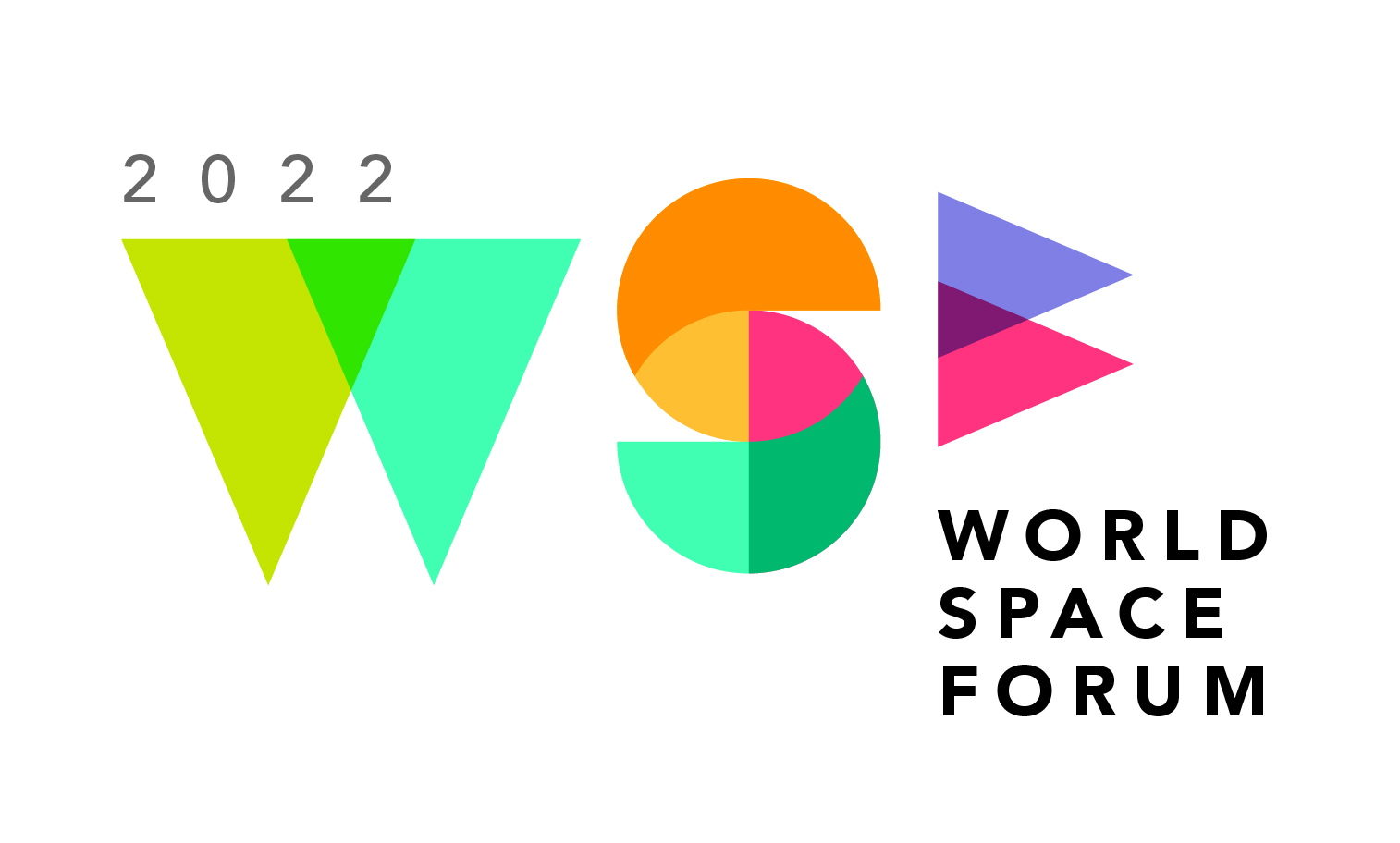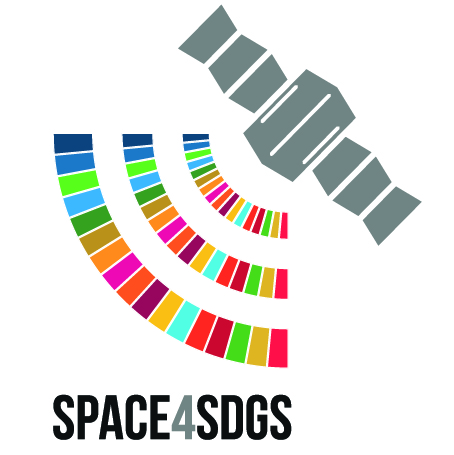Virtual United Nations/Austria World Space Forum 2022
'Sustainability in Space for sustainability on Earth'
Organized jointly by
The United Nations Office for Outer Space Affairs,
The Federal Ministry for Climate Action, Environment, Energy, Mobility, Innovation and Technology (BMK),
The Federal Ministry for Europe, Integration and Foreign Affairs (BMEIA)
13 - 15 December 2022 (fully virtual)
Back to the Main Page
Latest Information
- Find the programme as delivered here
- Agenda-at-a-glance
#WSF2022 | Background
The second "SDG Summit" - the High-level Political Forum on Sustainable Development under the auspices of the General Assembly will be convened in September 2023 during the General Assembly high-level week in New York. The Summit will mark the mid-point in the implementation of the 2030 Agenda and the Sustainable Development Goals (SDGs).
At the Summit, the Heads of State and Government will comprehensively review progress in the implementation of the 2030 Agenda and the SDGs and provide political guidance for the way forward. This will also include examination of new science-based solutions, including advanced tools with transformative power and innovative solutions for accelerating the full implementation of the SDGs in the remaining years towards 2030. As Space technology can directly and indirectly accompany the common efforts in virtually every sector and every area of the current processes, UNOOSA together with its stakeholders will continue to raise awareness on the benefits of space applications for everyone, everywhere.
Building on the landmark "Space2030" Agenda: space as a driver of sustainable development and its implementation plan, which is a comprehensive and strategic document charting the way to enhance the contribution of Space and its applications to sustainable development and the realization of other global agendas, namely climate change and disaster risk reduction, UNOOSA will continue to promote the usage and application of space technology in all fora.
The "Space2030" Agenda is a milestone document for COPUOS and for the international community at large because it contributes to aligning space policies with the Sustainable Development Goals. The Agenda contains valuable tools and international and regional mechanisms, programmes, projects and platforms that Member States can benefit from to leverage space technologies and applications and space-derived data to further economic growth and prosperity.
#WSF2022 | Setting the Stage
The "Space2030" Agenda has a strong focus on partnerships and cooperation among Member States, United Nations entities, intergovernmental and non-governmental organizations, industry and private sector entities and will also guide the work of the Committee and its subcommittees, supported by the Office for Outer Space Affairs as unique platforms for international cooperation in the exploration and use of outer space for peaceful purposes.
In the implementation of the "Space2030" Agenda it is envisioned that each Member State will implement the "Space2030" Agenda on a voluntary basis. In that regard, Member States are invited to actively undertake bilateral, multilateral, regional and broader international space cooperation in various forms, including capacity-building, the sharing of information and infrastructure and the development of joint projects, and, as appropriate, to integrate space cooperation with economic and development.
#WSF2022 | Objectives
The World Space Forum 2022 aims to:
- Put "Space2030" agenda in the centre as a guiding document to enhance space-derived economic benefits and strengthen the role of the space sector as a major driver for sustainable development.
- Connect "Space2030" Agenda and its implementation plan with the results, recommendations and discussions of the World Space Fora 2019, 2020 and 2021.
- Raise awareness on the "Space2030" Agenda in conjunction with the planned Sustainable Development Goals Summit in 2023.
- Highlight how Space technology can facilitate the implementation of the SDGs
- Present new space technologies that enable progress and drive cooperation and partnership in space
- Bring space actors together to exchange best practices and explore ways to jointly address challenges to humanity and sustainable development issues
#WSF2022 | Who is it for?
The WORLD SPACE FORUM brings together experts and policymakers from regional, national and local institutions, private organizations, academic institutions, non-governmental organizations and international organizations. Such multi-stakeholder composition allows for a truly inclusive, diverse and multilateral dialogue around the four pillars of space economy, space society, space accessibility and space diplomacy.
The organizers strive to support gender mainstreaming in their programmes and are committed to achieving a balanced representation of diverse backgrounds and perspectives.
#WSF2022 | Sessions overview |
||
Sessions |
Description |
Potential topics can include |
|
Session I:
|
Space assets have transformed the way we live and outer space systems are vital for understanding and solving global problems. Space-based services and technologies are key drivers in addressing the Sustainable Development Goals. The importance of the promotion of inclusiveness and equality in the space sector and the vital role of the United Nations Office for Outer Space Affairs to facilitate access to space has been acknowledged repeatedly in the past as the development of a sustainable, future-oriented and strong space sector is significantly dependent on the success of inclusion of all actors. |
Space2030 Agenda:
Overarching objective 2: Harness the potential of space to solve everyday challenges and leverage space-related innovation to improve the quality of life
SDGs: 1, 2, 4, 5, 7, 10 UNOOSA activities: Space4Women, Space Law for New Space Actors, Space4Youth, Access to Space for All. |
|
Session II:
|
Even as we work tirelessly to prevent climate change, we need to be prepared for a drastically different environment in the future. Most countries need to adapt their economies, their infrastructure and their services to account for the impact of climate change, with increased adaptation support for developing countries as stated above. This session will look at how space-based technologies play a significant role in targeted climate action and trigger policies to achieve the long-term goals of the Paris Agreement. At the World Space Forum 2021, the importance for an increased awareness raising and strengthened outreach on the vitality of Space technology specifically for climate adaptation and resilience efforts was stressed. The forum concluded with a recommendation on the importance of the enhanced understanding and consequent utilization of the benefits of space technology, and also highlighted the unique role of UNOOSA in that regard. |
Space2030 Agenda: Overarching objective 1: Enhance space-derived economic benefits and strengthen the role of the space sector as a major driver of sustainable development SDG: 6, 7, 11, 12, 13, 14 ,15 UNOOSA activities: Space4Women, Space for Climate Action, Space4Water |
|
Session III:
|
A central question remains prevention in all its aspects and in these efforts more innovation, more inclusion and more foresight will be vital. Remotely sensed data provides information for systems and models which can predict disasters and provide early warnings. Space technologies also enables us to better anticipate and respond to different risks and it will therefore be an indispensable tool for our collective preparedness efforts. To make maximum use of space applications for sustainable development the inclusion of technology developments and innovative approaches and solutions for prevention activities was highlighted and discussed at the recent World Space Fora. |
Space2030 Agenda: Overarching objective 2: Harness the potential of space to solve everyday challenges and leverage space-related innovation to improve the quality of life SDG: 3, 11, 13 UNOOSA activities: UN-SPIDER, Space4Water, Space4Climate Action |
|
UN-Space
Session IV:
|
The implementation plan of the Space2030 Agenda contains the agreement that COPUOS and UNOOSA should continue to fulfil their respective mandates and to cooperate and coordinate with other relevant entities within the UN system, including through UN-Space, the formal mechanism for UN system-wide cooperation and coordination in space-related activities. The UN-Space Session will therefore look at the synergies in the work of the COPUOS and its subsidiary bodies and UN entities, focussing, in particular, on advancing the work under the Space and Global Health Platform and Network, established by the STSC at the 59th session in 2022. The Session will promote dialogue among Member States, Forum participants and UN entities dealing with space, on the interdisciplinary and cross-sectoral space-related matter and identify synergies for greater international cooperation in the peaceful exploration and use of outer space and in the utilization of space science and technology for sustainable development. |
Space2030 Agenda: Overarching objective 4: Build partnerships and strengthen international cooperation in the peaceful uses of outer space and in the global governance of outer space activities SDG: 3, 16, 17 UNOOSA activities: Secretariat to COPUOS and its subsidiary bodies, UN-Space, Space and Global Health |
|
Session V:
|
One of the objectives of the "Space 2030" agenda is to take further steps for the United Nations system to become more inclusive. The increasing role and influence of the private sector, civil society and its centrality to achieving so many of the actions outlined in the agenda will also be taken into account at the World Space Forum. International partnerships, as well as public-private partnerships, have been promoted in the sequence of the World Space Fora as the space sector and the space economy specifically could only grow through the pursuit of strategic partnerships, cooperation and coordination between State and non-State actors. |
Space2030 Agenda: Overarching objective 4: Build partnerships and strengthen international cooperation in the peaceful uses of outer space and in the global governance of outer space activities SDG: 17 UNOOSA activities: PSA, Access to Space for All |
|
Session VI:
|
We are in an era of renewed exploration and use of outer space, with active programmes to return humans to the Moon and beyond and the planned launch of mega-constellations of thousands of new satellites. Global investment on space activities is increasing rapidly, projecting an irreversible dependence on space application. Space science, policy and technical experts have called the attention to the fact that humanity's continuous access to space is threatened, if the exponential and unsustainable proliferation of space activities continue. Ensuring that all humanity can continue to use outer space for peaceful purposes and socioeconomic benefit now and in the long term. This will require international cooperation, discussion, and agreements designed to ensure peaceful, safe and sustainable use of outer space. |
Space2030 Agenda: Overarching objective 1: Enhance space-derived economic benefits and strengthen the role of the space sector as a major driver of sustainable development SDG: 8, 9 UNOOSA activities: LTS |
Registration Information
At the current stage, the list of speakers is invitation-only.
Contact Information
UNOOSA - World Space Forum Organizing Team
E-Mail: worldspaceforum[@]un.org


